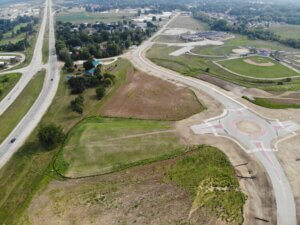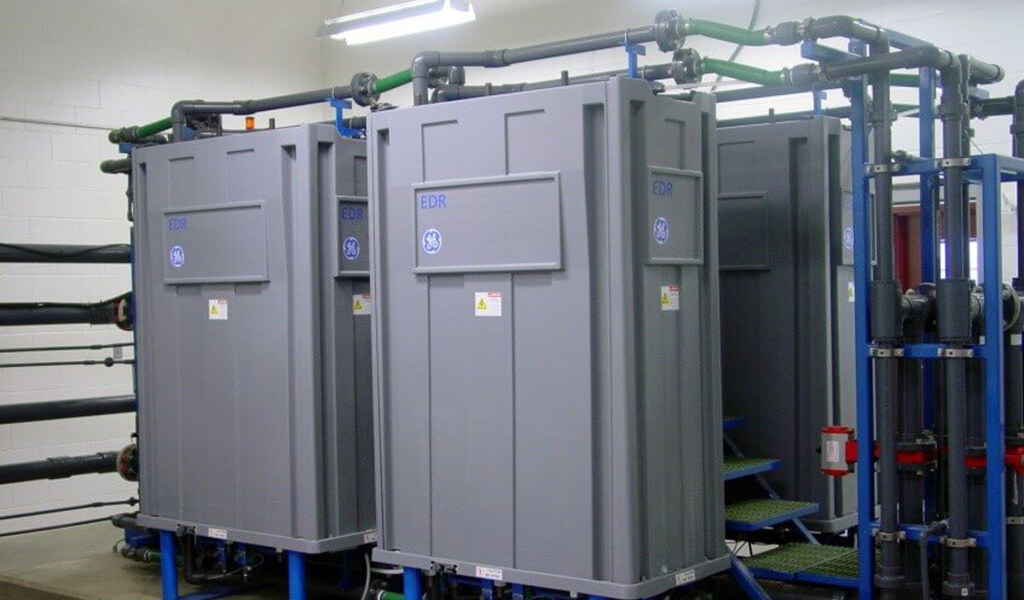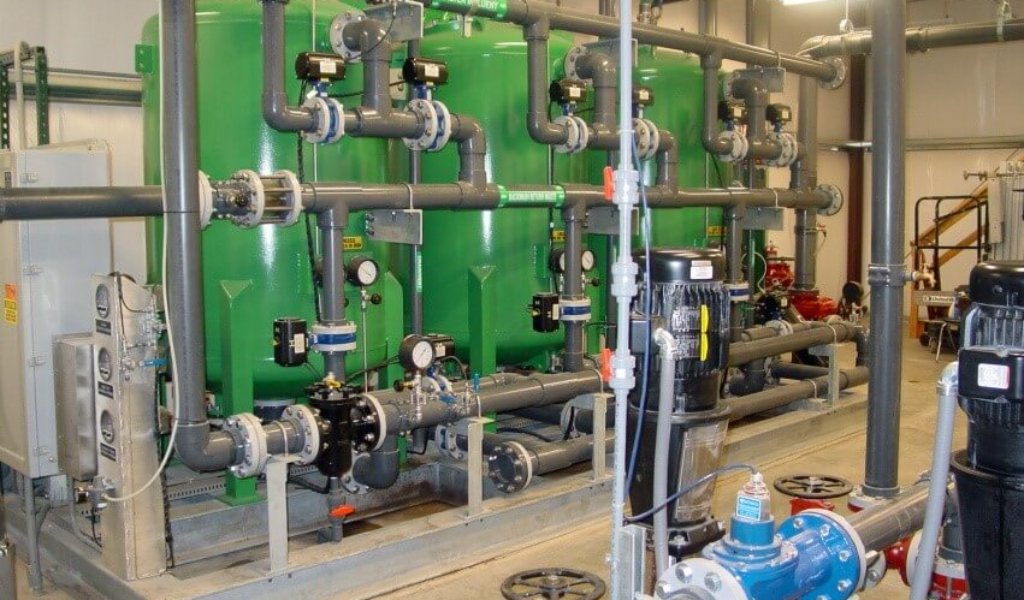
This project involved the construction of a new facility to treat drinking water from deep Jordan Sandstone wells containing excessive amounts of naturally occurring fluoride and radium. Water sourced from the Jordan aquifer in southwest Iowa is also typically high in hardness and iron. The city-owned the two existing Jordan wells, which were historically excellent water producers and very reliable due to depth. As raw water resources in the area are scarce, it was the desire of the owner to maintain both existing wells and reduce radium, fluoride, and hardness to acceptable levels.
The new treatment process consisted of high technology equipment to provide appropriate treatment for the raw water. As the well water contained a significant concentration of iron and manganese, a LayneOx pressure filter system was utilized, allowing for a significant reduction in equipment footprint. Following the iron filter, an Electrodialysis Reversal (EDR) membrane system was installed. EDR provided a high technology solution to reduce fluoride and radium in the source water to meet drinking water standards. In addition, hardness can be reduced to a level the plant operator selects. The Electrodialysis Reversal is adjustable in that changes to the electrical supply can vary final water quality produced by the process.
The facility also included a new steel ground storage reservoir and high service pumping to deliver finished water to the distribution system. New chemical feed and storage systems were constructed and housed in new rooms in the plant. An attractive metal building was provided for the entire facility, which includes office space, an electrical room, restroom, full laboratory, and storage space.
The finished water is treated with liquid sodium hypochlorite solution to ensure disinfection. Finished water pH is continuously monitored and adjusted to provide stable water. In addition, polyphosphate is added to the finished water to help protect the distribution system. The process is controlled by a complete SCADA electronic control system with online analyzers for many water parameters. Plant capacity is approximately 200 gpm (0.228 MGD).


